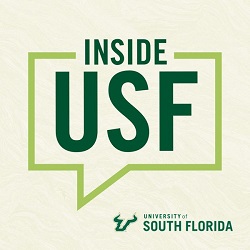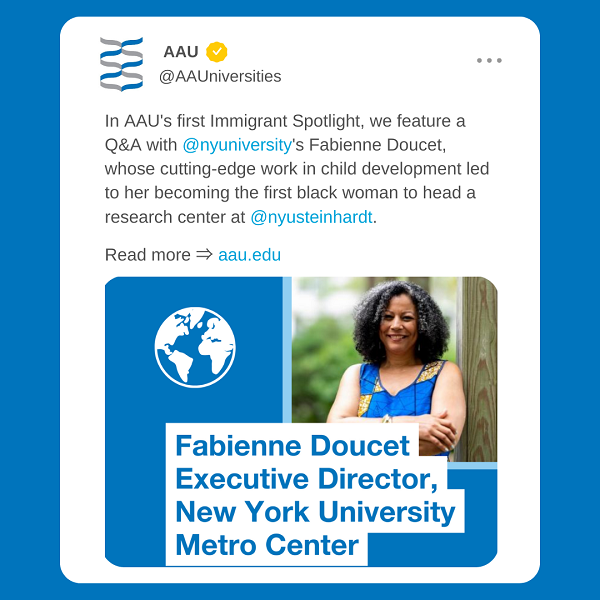 AAU Institutions Top List of U.S. Universities Granted Patents in 2022
AAU Institutions Top List of U.S. Universities Granted Patents in 2022
Last week, the National Academy of Inventors released its annual list of the top 100 universities granted utility patents in the United States in 2022. The University of California system topped the list with 570 patents; eight of the 10 campuses in the UC system are AAU members.
The other nine universities in the top 10 are all AAU members, including the Massachusetts Institute of Technology, the University of Texas, Purdue University, Stanford University, Harvard University, the California Institute of Technology, Arizona State University, Johns Hopkins University, and the University of Michigan. The list highlights the crucial role university research plays in developing breakthrough technologies and innovating for the future. As Purdue University President Mung Chiang said in a statement highlighting the university’s achievement: “The ranking proves that the university’s researchers are making discoveries along a wide breadth of subjects from energy and manufacturing to medical devices and pharmaceuticals and beyond.”
According to Forbes, utility patents cover “the creation of a new or improved product, process, or machine.” The NAI rankings are based on data provided by the U.S. Patent and Trademark Office.
 AAU, Indian Research Universities Agree to Establish Indo-U.S. Global Challenges Institute
AAU, Indian Research Universities Agree to Establish Indo-U.S. Global Challenges Institute
Last week, AAU and the Council of Indian Institutes of Technology (IIT Council) signed a memorandum of agreement to establish, and seek support for, a joint Indo-U.S. Global Challenges Institute.
The institute will be a virtual network of universities focused on fostering research partnerships and people-to-people exchanges between institutions in the United States and India, with the collaborations aimed at solving significant problems. The institute and its activities are intended to be inclusive of the U.S. and Indian research enterprises and will seek to maximize participation by a set of diverse institutions in both countries, including non-AAU and AAU member institutions. The White House announced the signing of the agreement in a joint statement with India as part of President Biden’s visit to the G20 summit there.
The institute will specifically facilitate research collaborations in the areas of semiconductor technology and manufacturing; sustainable agriculture and food security; sustainable energy and the environment; health equity and pandemic preparedness; and critical and emerging technologies. “We are very excited to lead the Indo-U.S. Global Challenges Institute with the IIT Council,” said AAU President Barbara R. Snyder. “I am especially grateful to IIT Kanpur Director Abhay Karandikar for his leadership in helping advance this important collaborative effort, which will benefit both the United States and India equally and which will help lead us to solutions to some of the biggest challenges facing the two nations.”
Creating the institute was one of the key recommendations contained in the interim report from the AAU Task Force on Expanding U.S.-India University Partnerships.
AAU Celebrates National Hispanic-Serving Institutions Week
Last week, President Biden proclaimed September 10 through September 16, 2023, as National Hispanic-Serving Institutions Week to acknowledge and celebrate the contributions of HSIs and their graduates. “Education beyond high school should be a ticket to the middle class – and across our nation, more than 500 Hispanic-Serving Institutions have helped to make that promise real, opening the doors of opportunity a bit wider for generations of Hispanic college students,” the proclamation noted, continuing: “During National Hispanic-Serving Institutions Week, we celebrate their important work.”
Hispanics must constitute at least 25% of an institution’s full-time, enrolled undergraduate population in order for it to be eligible for HSI status. The designation allows institutions to access specific federal funds to help students succeed and to expand educational opportunities.
Currently, eight AAU schools are officially designated as HSIs – Arizona State University; Texas A&M University; the University of Texas at Austin; the University of Arizona; and four University of California campuses, including Irvine, Riverside, Santa Barbara, and Santa Cruz. All eight schools are also members of the Alliance of Hispanic Serving Research Universities, which aims to double the number of Hispanic doctoral students and increase the number of Hispanic professors by 20% at participating institutions by 2030. AAU is proud of our HSI members and their efforts to ensure that students from Hispanic backgrounds have access to exceptional educational and research opportunities.
 AAU President Synder Appears on Inside USF Podcast
AAU President Synder Appears on Inside USF Podcast
Last month, AAU President Barbara R. Snyder joined University of South Florida President Rhea Law on the Inside USF podcast to discuss the university’s recent admission to AAU, the advantages of AAU membership, and the value of higher education and research.
President Snyder noted that USF’s AAU membership is a testament not only to the good work President Law and her administration have done, but also to the groundwork laid by her predecessor and USF’s faculty. She talked about how AAU membership can prove a strong recruiting tool for universities, and how the research and innovation happening on AAU member campuses can have a positive impact on the regions and the states in which the universities operate.
President Law also asked President Snyder about how AAU advocates for its members, what the association’s most pressing priorities are, and how AAU’s mission has changed over the years. President Snyder emphasized that joining AAU allows members to work collectively to advance scientific discovery and to advocate with one voice for federal funding, competitiveness, and the university-government-industry partnership. The full interview is available here.
 Appropriations Update: Coalition Urges Lawmakers to Adequately Fund International Education and Foreign Language Programs
Appropriations Update: Coalition Urges Lawmakers to Adequately Fund International Education and Foreign Language Programs
The Coalition for International Education, which includes AAU, sent a letter last week to House appropriators expressing concerns over reported cuts to the Department of Education’s International Education and Foreign Language Studies account and urging them to fund the account at the level of at least $85.7 million, the same amount as FY23.
The letter noted that the Title VI and Fulbright-Hays programs under the Higher Education Act are “foundational programs for international education, research, and foreign language studies” and that funding them is critical “for our nation’s prosperity and safety.” The letter emphasized that cultivating a professional workforce with foreign language capabilities and cultural expertise holds “special strategic interest” for U.S. national defense and diplomacy. “The time for action is now to support these crucial programs and secure the future of our nation in an increasingly complex global environment,” the letter said.
Congress continues to negotiate on passing FY24 appropriations measures as well as a continuing resolution to keep the government open past September 30, the end of the current fiscal year. Last week, the Senate voted to move forward with consideration of a $279 billion three-bill appropriations package, but the momentum slowed as some Republican senators demanded that the bills be considered separately. On the House side, Speaker Kevin McCarthy (R-CA) is working with members of the House Freedom Caucus to find a path forward to passing a stopgap continuing resolution to avoid a government shutdown and to bring FY24 spending measures on the House floor. Roll Call reports that the negotiations are likely to bring both the House and the Senate “right up against the Sept. 30 funding deadline.”
News of Interest
Inside Higher Ed: With Budget Battles Looming in Congress, Prospects for Higher Ed Reforms Don’t Look Bright – With Congress deeply divided over spending and facing an impending government shutdown, few higher education advocates expect any major movement on higher education issues.
CNN: Federal Judge Again Declares Obama-era DACA Program Unlawful – A Texas federal judge ruled last week that the Deferred Action for Childhood Arrivals (DACA) program is illegal and violates the Administrative Procedure Act. The program provides protection from deportation for nearly 600,000 college students and other young people who were brought to the United States as children. The ruling blocks the government “from approving new applications for the program but allow[s] it to continue for current enrollees.” As AAU tweeted, the ruling reinforces the need for Congress to act and provide the program’s participants a path to citizenship.
Forbes: NSF Investing $76 Million in Four University-Based Physics Frontier Centers – The National Science Foundation has awarded $76 million to four university-based physics centers “to conduct groundbreaking research into some of the field’s most challenging questions.” All four centers are at AAU institutions, including the University of Chicago, the California Institute of Technology, the University of Colorado, and the Massachusetts Institute of Technology.
KRCG: University of Missouri Receives $20 Million Grant for Cancer Research Reactor Expansion – The University of Missouri Research Reactor has received a $20 million grant from the National Institutes of Standards and Technology “to expand cancer research capabilities” and to build “a new 20-megawatt research reactor on the MU campus.” According to Rep. Blaine Luetkemeyer (R-MO), “The new reactor will focus on producing critical short-lived medical radioisotopes used in cancer treatments for patients across the U.S.”
Columbia Missourian: Washington University Launches a ‘No-Loan’ Program to Combat Student Debt – Washington University in St. Louis announced last week that the university is instituting a “no-loan” policy starting fall 2024 for students with demonstrated financial need. WashU Chancellor Andrew Martin said: “We want to get them here, support them during their time here, and prepare them to do great things. Now, when they graduate from WashU, they will do so debt-free.”
Star-Ledger: Rutgers’ Holloway and HBC President: We Are Standing Up for Free Speech on Campus – In an opinion essay, Rutgers University President Jonathan Holloway and Benedict College President Roslyn Clark Artis write about the importance of free speech on campus and the responsibility of colleges to teach students how to find common ground with others and engage in “constructive civil discourse.” Both institutions are part of a recent initiative called the Campus Call for Free Expression, which brings together more than a dozen colleges and universities across the nation to “uplift the principles of free expression and critical inquiry.”
ABC5: Case Western Just Made College Even More Affordable for Many Hometown Students – Case Western Reserve University is expanding its Cleveland Scholars program, which covers education costs for graduates of certain Cleveland high schools. “Only 15% of our entering students are from the state of Ohio, much less from Northeast Ohio, and we’re happy with the people from the rest of the world, the rest of the country that come, but we would want to be a little bit more welcoming for our hometown students and this I think will help us do that,” said Case Western Reserve President Eric Kaler.
Featured Research

Longevity Gene from Naked Mole Rats Extends Lifespan of Mice
Researchers from the University of Rochester “have successfully transferred a longevity gene from naked mole rats to mice, resulting in improved health and an extension of the mouse’s lifespan.” Naked mole rats have surprisingly long lifespans (41 years) and are uniquely resistant to diseases associated with aging. The study has “opened exciting possibilities for unlocking the secrets of aging and extending human lifespan.”

Study Finds Sea-Level Rise Is Swallowing Farms in Maryland, Delaware, and Virginia
A recent analysis from researchers from the University of Maryland, University of Delaware, and George Washington University found saltwater is rapidly intruding on farmland in Delaware, Maryland, and Virginia due to rising sea levels and is covering land with visible salt patches. The reduction in crop yield due to the salt patches and increased soil salinity is leading to millions of dollars in economic losses.
From Our Feeds

AAU is launching a new “Immigrant Spotlight” series highlighting the incredible contributions of immigrant researchers at U.S. universities. The first article in the series features New York University Metropolitan Center for Research on Equity and the Transformation of Schools Executive Director Fabienne Doucet. Born in Spain and raised in Haiti, Doucet’s research focuses on childhood and urban education. Read more about Doucet’s work and her journey on the AAU website.